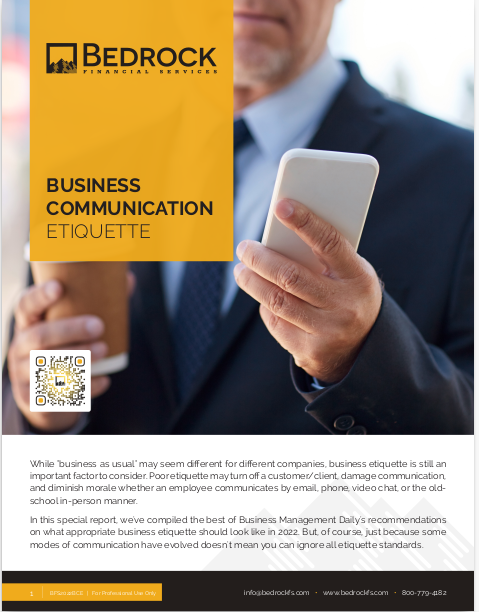Key Takeaways
-
Most CRMs underperform not because they lack features, but because they are not built for the real workflow of insurance agents.
-
You need a CRM that automates follow-up, prioritizes relationship-building, and integrates tightly with your daily client conversations.
The Promise vs. The Reality of Most CRMs
You’ve probably been told your CRM is the backbone of your business. And in theory, it should be. But what’s the reality? Most insurance agents log in less than once a week. And even when they do, it’s often just to check a task off a list, not to build a meaningful connection with a lead or client.
It’s 2025, and most CRMs still operate like it’s 2013—clunky, manual, and designed for people who have time to babysit software. You don’t. You have calls to make, clients to serve, and revenue to generate.
Where CRMs Fail Independent Agents
1. They’re Built for Sales Reps, Not Relationship Professionals
As an independent insurance agent, you’re not just selling policies. You’re managing families, health, retirements, and trust. That’s not a transactional job. It’s relational. Most CRMs are built for salespeople who treat contacts like leads. But you treat people like people.
This mismatch turns the CRM into a to-do list rather than a trust-building tool. It keeps your contacts organized but doesn’t help you deepen relationships or keep conversations human.
2. Follow-Up Systems Are Manual and Rigid
The most successful insurance sales happen during the 7th or 8th follow-up. But if your CRM just reminds you to send an email or make a call without giving context, it’s no better than a sticky note.
Effective CRMs in 2025 should:
-
Auto-log past conversations
-
Suggest ideal follow-up windows
-
Generate templates based on your voice
But most still require you to build every workflow yourself. And unless you moonlight as a software engineer, that’s unrealistic.
3. Data Entry Drains the Day
Manual data entry is still a pain point. CRMs should be pulling info from call transcripts, emails, and forms in real time. Instead, they rely on you to do the heavy lifting. That means time spent inputting instead of advising.
By now, automation should be non-negotiable. If your CRM can’t auto-update, track activity, and populate fields from integrations, it’s a liability.
4. Alerts Are Noisy, Not Strategic
If you’re drowning in pop-ups and notifications, that’s not support—it’s distraction. A well-designed CRM should know what matters most in your pipeline and alert you only when a real action is needed.
You shouldn’t have to sift through 20 reminders to find the one that could close a sale. Prioritization isn’t a luxury anymore. It’s required.
What Insurance Agents Actually Need in a CRM in 2025
Your daily workflow isn’t generic. It’s personal, fast-paced, and high-stakes. That means your CRM needs to act more like a digital assistant than a digital filing cabinet.
1. A CRM That Thinks Like You Do
You don’t think in categories or tags. You think in client stories. So your CRM should:
-
Show relationship history
-
Highlight concerns raised in past conversations
-
Provide a timeline of decisions made
Context isn’t extra—it’s essential.
2. Seamless Communication Hubs
In 2025, there’s no excuse for not having one-click access to:
-
Text
-
Email
-
Voicemail drops
-
Call notes
You shouldn’t have to jump between platforms or re-type information. Your CRM should be your communication cockpit—everything launched from one view.
3. Built-In Smart Sequences
Follow-up shouldn’t be one-size-fits-all. You should be able to drop a client into a sequence that adapts:
-
If they open but don’t reply
-
If they schedule a call
-
If they mention a competitor
These micro-adjustments should be automatic. If you’re doing this by hand, you’re losing time and money.
4. Performance Feedback That’s Actually Useful
You don’t need charts for vanity metrics. You need insights like:
-
Which outreach method your clients respond to best
-
How long your sales cycles really are
-
When clients are most likely to ghost
Your CRM should be teaching you how to close better. If it’s not offering patterns and predictions, it’s behind.
5. AI-Powered Reminders That Are Human
There’s a difference between “Follow up with Jim” and “Jim mentioned his daughter’s graduation this week—might be a good time to check in.”
One feels robotic. The other feels like you.
In 2025, your CRM should be smart enough to remind you with context. It should recommend timing, tone, and even subject lines. Anything less is outdated.
Why Most CRMs Still Haven’t Caught Up
Despite advances in technology, most CRMs are still made with large enterprises in mind. They’re not optimized for the solo agent or small office. Instead, they prioritize scalability over simplicity.
But your edge isn’t in scale—it’s in your human touch. You can’t afford tools that waste your time, interrupt your flow, or turn every call into a form-fill.
The Wrong Metrics Drive CRM Design
Too many CRM platforms focus on data collection, not data action. They reward usage statistics over actual outcomes.
They ask, “Did the agent open the dashboard today?” when they should ask, “Did the agent close a deal today—and how did we help?”
That’s why even feature-rich CRMs end up collecting dust.
They Assume You’ll Build the Workflows Yourself
You’re an insurance expert, not a systems designer. But many CRMs assume you’ll:
-
Write every drip email
-
Create every tagging rule
-
Design every pipeline
That’s backwards. In 2025, CRM platforms should come pre-built with templates made for agents, not by agents.
Integration Gaps Still Hurt Productivity
Even now, many CRMs don’t play well with the tools you use—calendar apps, dialing software, quoting platforms. And every time you switch tabs, your focus breaks.
True productivity in 2025 comes from one word: flow. If your CRM doesn’t preserve it, it’s working against you.
How to Tell If Your CRM Is Hurting More Than Helping
It’s easy to blame yourself when your CRM collects dust. But it might not be your fault. Here’s how to know:
-
You avoid logging in unless absolutely necessary
-
You use it mainly for recordkeeping, not engagement
-
Your team forgets to update it because it’s a chore
-
You still rely on sticky notes or spreadsheets for critical follow-up
If even two of these are true, it’s time to rethink what you’re using.
How We Help Agents at Bedrock Stop Wasting Time
At Bedrock Financial Services, we’ve seen what agents actually need. You don’t need more tools—you need the right tools, already set up, already tested, already proven.
That’s why we offer:
-
Prebuilt CRMs optimized for insurance sales workflows
-
Automation that actually feels natural
-
Personalized support so you’re not configuring things alone
We help independent agents like you stop wrestling with systems and start spending more time in conversations that close.
If you’re ready to stop letting your CRM gather dust and start letting it help you win more consistently, it’s time to connect with us.
Make Your CRM Work for You—Not the Other Way Around
Your CRM should be your competitive advantage—not a weekly chore. If it’s not saving you time, closing deals faster, and deepening trust, it’s not doing its job. In 2025, you deserve better.
We’re here to help you get there. Let’s turn your CRM from a data dump into a deal engine.
Sign up at Bedrock Financial Services today, and let’s build your success system together.







